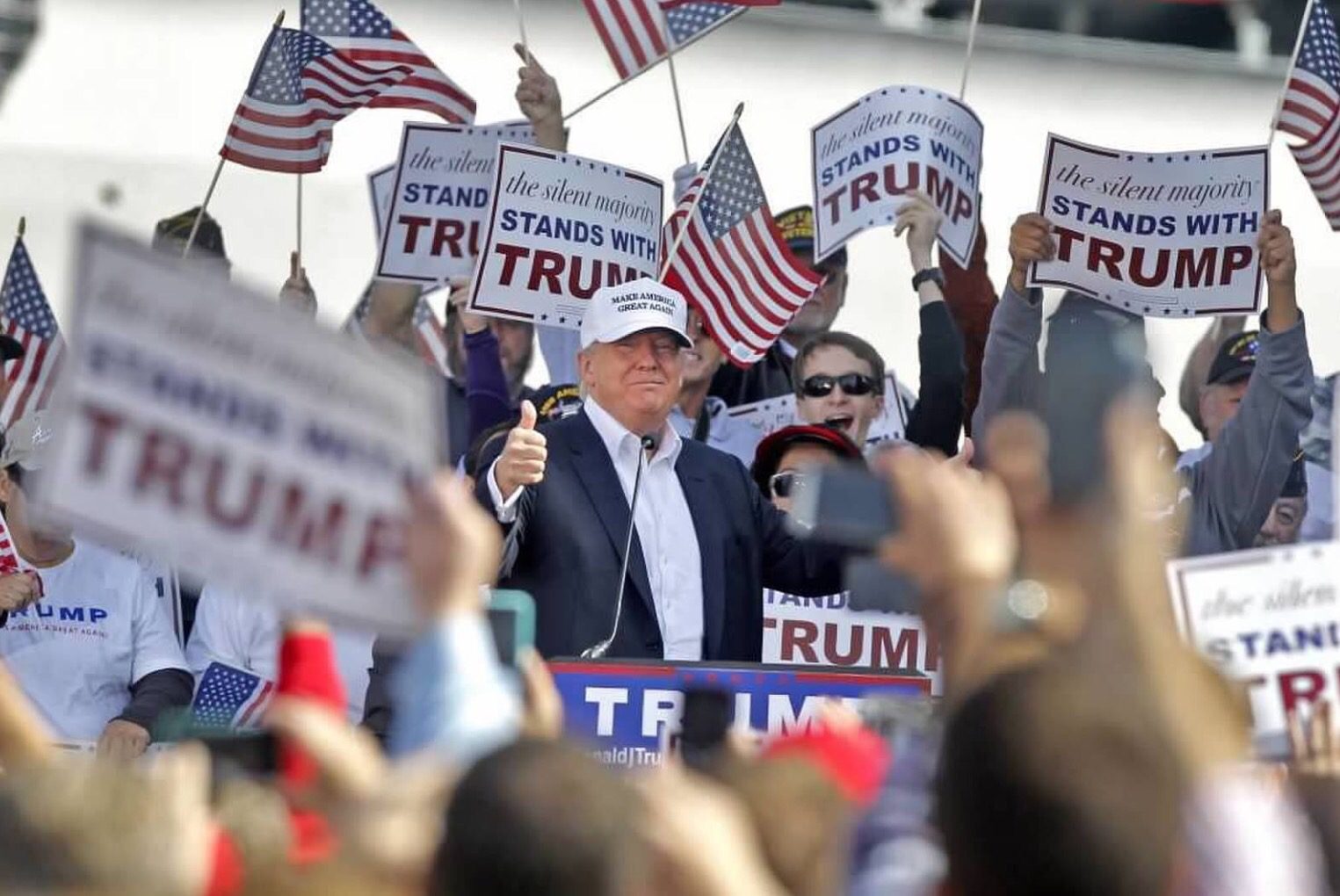Associated Press
Donald Trump claimed his place Wednesday as America’s 45th president, an astonishing victory for the celebrity businessman and political novice who capitalized on voters’ economic anxieties, took advantage of racial tensions and overcame a string of sexual assault allegations on his way to the White House.
Trump’s triumph over Hillary Clinton, not declared until well after midnight, will end eight years of Democratic dominance of the White House. He’ll govern with Congress fully under Republican control and lead a country deeply divided by his rancorous campaign against Clinton. He faces fractures within his own party, too, given the numerous Republicans who either tepidly supported his nomination or never backed him at all.
As he claimed victory, Trump urged Americans to “come together as one united people.”
Clinton, who had hoped to become the first woman to be elected president, called her Republican rival to concede but did not plan to speak publicly until Wednesday morning.
She was leading the nationwide popular vote, though some states were still counting ballots.
Global stock markets and U.S. stock futures plunged early Wednesday, but later recovered, reflecting investor concern over what a Trump presidency might mean. The Dow Jones industrial average was flat after trading opened Wednesday.
President Barack Obama called Trump to congratulate him and invited the Republican to a meeting at the White House Thursday to discuss transition. Obama also called Clinton to convey his admiration for the “strong campaign she waged throughout the country,” White House spokesman Josh Earnest said.
Obama planned a televised statement Wednesday on “what steps we can take as a country to come together after this hard-fought election season,” the White House said.
Trump, who spent much of the campaign urging his supporters on as they chanted “lock her up,” said the nation owed Clinton “a major debt of gratitude” for her years of public service. Trump campaign manager Kellyanne Conway said Obama and Trump had “a very nice talk” when the President called him.
The Republican blasted through Democratic strongholds of Pennsylvania and Wisconsin, states that hadn’t voted for a GOP presidential candidate since the 1980s. He needed to win nearly all of the competitive battleground states, and he did just that, including Florida, Ohio, North Carolina and others.
GOP Senate candidates fended off Democratic challengers in key states, including North Carolina, Indiana and Wisconsin. Republicans also maintained their grip on the House.
Senate control means Trump will have great leeway in appointing Supreme Court justices, which could shift the bench to the right for decades.
Trump upended years of political convention on his way to the White House, leveling harshly personal insults against his rivals, deeming Mexican immigrants rapists and murderers, and vowing to temporarily suspend Muslim immigration to the U.S. He never released his tax returns, breaking with decades of campaign tradition, and eschewed the kind of robust data and field efforts that helped Obama win two terms in the White House, relying instead on his large, free-wheeling rallies to energize supporters. His campaign was frequently in chaos, and he cycled through three campaign managers.
Conway, his final campaign manager, touted the team’s accomplishments as the final results rolled in, writing on Twitter that “rally crowds matter” and “we expanded the map.”
Clinton spent months warning voters that Trump was unfit and unqualified to be president. But the former senator and secretary of state never sold the nation on her own candidacy.
She faced persistent questions about her honesty and trustworthiness. Those troubles flared anew late in the race, when FBI Director James Comey announced a review of new emails from her tenure at the State Department. Just two days before Election Day, Comey said there was nothing in the material to warrant criminal charges against Clinton.
Trump will inherit an anxious nation, deeply divided by economic and educational opportunities, race and culture.
Exit polls underscored the fractures: Women nationwide supported Clinton by a double-digit margin, while men were significantly more likely to back Trump. More than half of white voters backed the Republican, while nearly 9 in 10 blacks and two-thirds of Hispanics voted for the Democrat.
___
Associated Press writers Catherine Lucey, Jonathan Lemire, Lisa Lerer and Jill Colvin and AP Polling Director Emily Swanson contributed to this report.






